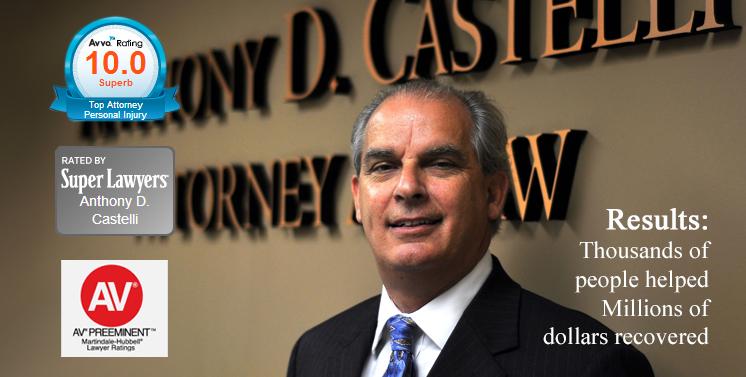If the employer contests the claim, a denial may be issued even without a hearing. Therefore, it is important for you to immediately seek the advise of an attorney if you get anything from worker's compensation. Mr. Castelli handles his worker's compensation claims on a contingency basis, which means that a legal fee is paid only if he successfully obtains a recovery for you, although there may be expenses.
Workers' Compensation Benefits & Returning to Work
Under most workers' compensation systems, an injured employee is entitled to the following types of benefits:
- Medical Care The injured party has the right to all reasonable necessary treatment to cure or relieve the effects of the injury. Included under medical treatment compensation are all medical bills, prescriptions, and even round trip mileage to the hospital. Under certain workers' compensation plans, a patient might have to use the company doctor, but usually only for a maximum of 30 days. After that time, a patient may choose a different doctor, but may have to submit a written request.
- Temporary Disability
If the injured party must take time away from work due to medical reasons related to the injury, he or she might be entitled to temporary disability payments. That would provide him or her with partial compensation for lost wages. There are specific maximum and minimum limits to the pay rate, but this normally equals about two-thirds of one's average weekly gross pay, and is paid out every two weeks. After the doctor verifies an inability to work, the first temporary disability check should arrive within a few weeks. - Permanent Disability
If a worker can't completely recover from the effects of an injury, he or she could be entitled to a monetary award for his or her permanent disability. Permanent disability means that the injured party has lost some ability to compete in the open labor market of uninjured workers. The amount and rate at which permanent disability is paid depends on how great a limitation the injury places on one's activities. Other elements taken into consideration are age, occupation and earnings at the time of injury. The determination of whether an accident caused a partial or permanent disability can involve tens of thousands of dollars (usually, as compensation for future wages). - Vocational Rehabilitation
If an injury prevents a return to one's former job, assistance in getting another job (vocational rehabilitation) might be included in workers' compensation benefits. During vocational rehabilitation, a partial income is distributed, similar to temporary disability. The vocational rehabilitation benefit usually has a maximum monetary limit, and may be replaced by an offer of modified or different work from the employer.
The Effect of Returning to Work
When an employee returns to work after being injured, if the employee receives wages equal to or greater than he or she was earning prior to the injury, then it is likely workers' compensation benefits will be stopped. If, however, the employee is still experiencing a wage loss due to his or her injury, he or she may continue to receive wage loss benefits, although the benefits will most likely be for a lesser amount.
Most states provide different types of wage loss benefits. Two types of benefits that may be available are "temporary partial" and "temporary total" benefits. Temporary partial disability benefits are payable to an employee who has experienced a work injury and is temporarily disabled, but is still able to earn some wages despite a temporary disability. These benefits are generally payable based on a percentage difference between the employee's pre and post-injury earnings.
Temporary total disability benefits are generally payable to injured employees who are temporarily prohibited from working, in any capacity, as result of the work injury. These benefits are, in some jurisdictions, payable based upon a percentage of the pre-injury wages of the injured employee.
Temporary partial and temporary total benefits are by no means an exhaustive list of the types of benefits that employees may be entitled to, and they may not be available in every jurisdiction or may not be payable for the type of disability sustained. They are described here merely as an example of the type of wage benefits that are available and how a return to work may affect the ability to obtain those benefits.
Remember, if there is any change in an employee's work status while he or she is receiving workers' compensation benefits, the employer or the insurer should be notified immediately, as well as the employee's attorney. Failure to do so may have adverse effects on the employee's right to receive benefits.


